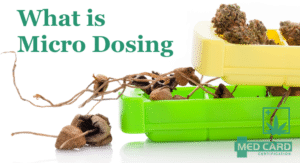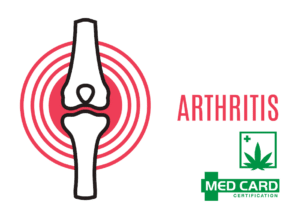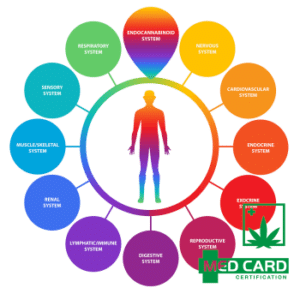
How Medical Marijuana Helps Treat Tourette's
How medical marijuana helps treat Tourette’s Syndrome.
Studies on medical marijuana for Tourette’s Syndrome.
Best cannabis products for treating Tourette’s Syndrome.
Best marijuana strains for treating Tourette’s Syndrome.
Can medical marijuana help treat Tourette’s Syndrome? What effect does marijuana have on Tourette’s patients? And how is medical marijuana used to treat Tourette’s?
We’re going to answer these questions in this post.
Tourette’s patients usually present a mixed bag of vocal and motor tics that often go unnoticed by casual observers. Tics such as throat clearing, coughing, tongue clicking, blinking, eye-rolling, and shoulder-shrugging are all common, involuntary occurrences known to plague TS sufferers. Some individuals may produce some awkward noises such as whistling, shouting random phrases, imitating animal noises, or in rare cases, yelling profanities.
Many patients are offered standard medications to control their symptoms, but these drugs tend to come with an array of unpleasant side effects. Antipsychotics such as pimozide and haloperidol are prescribed on a regular basis, even though they are not specifically designed to treat TS. These drugs suppress the body’s dopamine receptors, and this suppression may effectively cause other nasty issues.
Studies have shown that tics occur with far more frequency during REM cycles of sleep. As a result, many TS patients suffer from extreme bouts of insomnia that can exacerbate the symptoms of the condition. When medical marijuana is administered, REM sleep is reduced, thereby reducing the occurrence of tics.
Medical marijuana not only reduces the frequency and severity of tics, but it has also been shown to help temper anxiety, obsessiveness, irritability, and rage that often come with Tourette’s.
Studies on medical marijuana and Tourette’s
Studies indicate that the body’s innate endocannabinoid system (ECS) may play a significant role in Tourette’s Syndrome. TS patients have profound issues with the basal ganglia, the frontal lobe, and the thalamus. When there is dysfunction in the ECS, it can wreak havoc on the brain’s processing abilities.
The vast proliferation of cannabinoid receptors in the basal ganglia, suggests the ECS is partially responsible for its function. Supplementing the body’s own naturally produced endocannabinoids with the phytocannabinoids produced in cannabis may bring improvement to a patient’s condition.
The two most common cannabinoids produced in marijuana are delta-9-tetrahydrocannabinol (THC) and cannabidiol (CBD). While THC is well-known for its intoxicating properties, CBD is non-intoxicating.
Decades ago, in 1998, a German research team studied a sub-group of participants suffering from Tourette’s syndrome in a 64-patient study. Out of 17 patients who used medical marijuana to treat their condition, 14 reported significant or total cessation of their symptoms. The research team subsequently performed the same experiment, and the results were almost identical.
In a 2003 study from the American College of Neuropsychopharmacology a strong correlation between the ECS, the application of THC, and reduction of TS symptoms was again shown. Interestingly, it was discovered that Tourette’s patients given THC did not experience the short-term memory deficits reported by many THC users.
Over a six-week period, 24 Tourette’s patients were involved in a randomized, double-blind, placebo-controlled study. The research ultimately determined that there were no discernable detrimental effects on word recognition, visual memory, or attention span in the participants.
Here is an excerpt from that study:
“Previous studies provide evidence that marijuana (Cannabis sativa) and delta-9-tetrahydrocannabinol (Delta(9)-THC), the major psychoactive ingredient of marijuana, respectively, are effective in the treatment of tics and behavioral problems in Tourette syndrome (TS).
It, therefore, has been speculated that the central cannabinoid receptor system might be involved in TS pathology. However, in healthy marijuana users, there is an ongoing debate as to whether the use of cannabis causes acute and/or long-term cognitive deficits. In this randomized double-blind placebo-controlled study, we investigated the effect of treatment with up to 10 mg Delta(9)-THC over a 6-week period on neuropsychological performance in 24 patients suffering from TS. During medication and immediately as well as 5-6 weeks after withdrawal of Delta(9)-THC treatment, no detrimental effect was seen on the learning curve, interference, recall and recognition of word lists, immediate visual memory span, and divided attention.
Measuring immediate verbal memory span, we even found a trend towards a significant improvement during and after treatment. Results from this study corroborate previous data suggesting that in patients suffering from TS, treatment with Delta(9)-THC causes neither acute nor long-term cognitive deficits.”
In another report from the Hannover Medical School in Germany, anecdotal evidence and two controlled trials were discussed. The author discusses the results of the two studies and discusses the positive results of THC application for Tourette’s and concludes that “in both studies, a significant tic reduction could be observed after treatment with THC compared to placebo, without causing significant adverse effects.”
Ultimately, the author suggests that more studies on marijuana and Tourette’s must be carried out for more conclusive evidence. She goes on to say, however, that medical marijuana is recommended by many experts when other treatments fail to reduce tics.
Here is an excerpt from this publication:
“Cannabinoids have been used for hundreds of years for medical purposes. Today, the cannabinoid delta-9- tetrahydrocannabinol (THC) and the cannabis extract nabiximols are approved for the treatment of nausea, anorexia, and spasticity, respectively. In Tourette syndrome (TS) several anecdotal reports provided evidence that marijuana might be effective not only in the suppression of tics but also in the treatment of associated behavioral problems. At the present time, there are only two controlled trials available investigating the effect of THC in the treatment of TS. Using both self and examiner rating scales, in both studies, a significant tic reduction could be observed after treatment with THC compared to placebo, without causing significant adverse effects. Available data about the effect of THC on obsessive-compulsive symptoms are inconsistent. According to a recent Cochrane review on the efficacy of cannabinoids in TS, definite conclusions cannot be drawn, because longer trials including a larger number of patients are missing. Notwithstanding this appraisal, by many experts, THC is recommended for the treatment of TS in adult patients, when first-line treatments failed to improve the tics.”
How to use MMJ for Tourette’s
Mother of Teen With Tourette's Pushes For Medical Cannabis In Schools | Video
When treating Tourette’s syndrome with medical marijuana, a combination of cannabinoids is most often the best option. The combined effects of THC, CBD, and terpenes (essential oils found in marijuana) can be greater than the sum of their individual effects. This phenomenon is known as the entourage effect.
Keep in mind that not only does each strain of marijuana contain different levels of various cannabinoids and terpenes, each patient responds differently to these compounds. While some patients might benefit from a strain that is high in THC, others might get better results with a strain that is higher in CBD. It’s always best to start with a strain that contains balanced levels of CBD and THC.
Another option is to use small doses of strains that are high in THC and then supplement with hemp-derived CBD oil. While a medical marijuana card is required to purchase products containing THC in certain states, anyone can buy CBD oil online. Also, for the time being, patients can also buy delta-8-THC online. It’s similar to the THC found in marijuana, but it is produced from CBD and is less intoxicating.
Tourette’s patients have some options when it comes to medical marijuana delivery methods.
Smoking and vaping medical marijuana offer the fastest onset time for relieving the symptoms of Tourette’s syndrome. The effects of inhaled cannabinoids are almost instantaneous. However, smoking may not be an option for some patients.
Marijuana edibles including baked goods, candies, and cannabis-infused beverages have a slower onset time. However, the upside is that the effects of edibles are longer-lasting. For a faster onset time try using edibles such as gummies and beverages on an empty stomach.
Tinctures, oils, and capsules are all convenient and popular for their ease of use. Tinctures and oils can be taken sublingually (under the tongue). They can be added to foods. Capsules, like candy edibles, dissolve quickly in the stomach.
Tourette’s patients who are new to using medical marijuana should start with the lowest possible dosage. Assuming there are no adverse effects, the patient can slowly increase the dosage until the desired effects are achieved.
In most cases, small dosages actually work better than large dosages. In fact, the effects can actually decrease at higher doses. Moreover, side effects such as anxiety can be made worse at high dosages.
Although there are no cases of patients dying from an overdose of medical marijuana, it is expensive. Using more than needed is a waste of money.
Medical marijuana strains for Tourette’s syndrome:
Pink Berry is an indica strain that induces a state of euphoria, as well as a relaxed feeling. It’s perfect for reducing agitation.
Fat Axl is a hybrid strain that improves mood and relaxes tense muscles. A great stress-buster and pain-reliever.
Josh DOG is an indica strain known for anxiety relief.
Dream Beaver is a sativa strain that is uplifting and good for daytime use. Dream Beaver has an energizing effect that encourages social behavior. It also alleviates muscle spasms and fatigue.
Gooberry is an indica strain that is super-relaxing and perfect at bedtime.
White Fire 43 is another indica strain known for alleviating insomnia, depression, and stress.
All of these strains are also known to reduce the incidence and severity of tics.
Keep in mind, every patient is different. Some patients might find that marijuana actually worsens some symptoms. For example, some patients might have increased anxiety when using strains that are high in THC.
We hope this article provided some valuable information that can help patients suffering from Tourette’s syndrome to make an informed decision as to how to treat their symptoms with medical marijuana. However, it’s always best to use marijuana under the guidance of a qualified medical marijuana doctor
get a marijuana card for Tourette's

Sign Up for Medical Cannabis Today!
For potential patients, if you’re ready, we make it easy to connect with a medical marijuana doctor nearby or online. If you are interested in getting certified, please fill out the MMJ patient registration form below and press submit to get started. See if you qualify today!

MedCard Registration Form

Sources and additional reading:
- Treatment of Tourette syndrome with delta-9-tetrahydrocannabinol (delta 9-THC): no influence on neuropsychological performance
- [PDF] Treatment of Tourette Syndrome with Cannabinoids
- Vaporized Cannabis Is Effective and Well-Tolerated in an Adolescent with Tourette Syndrome
- How CBD Helps Treat Tourette’s Syndrome
- Preliminary Evidence on Cannabis Effectiveness and Tolerability for Adults With Tourette Syndrome | The Journal of Neuropsychiatry and Clinical Neurosciences.
















